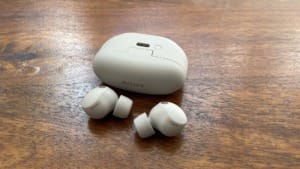Samsung could add optical blood glucose monitoring to the Galaxy Watch series
Samsung may add an optical blood glucose sensor to its Galaxy Watch, offering non-invasive monitoring and challenging Apple in wearable health tech.

Samsung is taking bold steps to revolutionise smartwatch technology by potentially introducing an optical blood glucose sensor to its Galaxy Watch series. This move could reshape the wearable tech industry and bring a much-needed advancement in health monitoring.
Table Of Content
A breakthrough in non-invasive blood glucose monitoring
Samsung’s senior vice president, Hon Park, has shared exciting updates on the company’s progress in developing a non-invasive, optically based continuous glucose monitoring system. Unlike traditional methods, which involve finger pricks or blood tests, this innovative technology would use infrared light to measure blood glucose levels—similar to how optical heart rate sensors function.
While Park did not provide a clear timeline for the feature’s launch, he expressed optimism about the progress, calling it a potential “game-changer” if implemented effectively. If successful, this technology could offer a more convenient, pain-free way for individuals to track their blood sugar levels, especially those managing diabetes.
Years of research and development
Samsung’s interest in blood glucose monitoring technology is not new. In 2020, the South Korean tech giant collaborated with the Massachusetts Institute of Technology (MIT) to explore non-invasive methods for monitoring blood sugar. This partnership marked a significant milestone in Samsung’s efforts to develop wearable health technology.
However, Samsung isn’t the only player in this field. Apple has also been investing heavily in similar technology. Reports suggest Apple has a dedicated team of 30 biomedical engineers working on optical sensors for blood glucose monitoring. As of 2023, Apple spent tens of millions of dollars annually on this project, although industry experts predict it may still be a few years before the technology becomes market-ready.
A race for first-mover advantage
The competition between Samsung and Apple is heating up, with both companies vying for the first-mover advantage in wearable blood glucose monitoring. If Samsung manages to launch this feature ahead of its rivals, it could significantly boost sales of its Galaxy Watch series and solidify its position as a leader in wearable health technology.
For now, the promise of a pain-free, non-invasive blood glucose monitoring system remains one of the most anticipated advancements in smartwatch technology. Should Samsung succeed, this innovation could transform how millions of people manage their health daily.
















